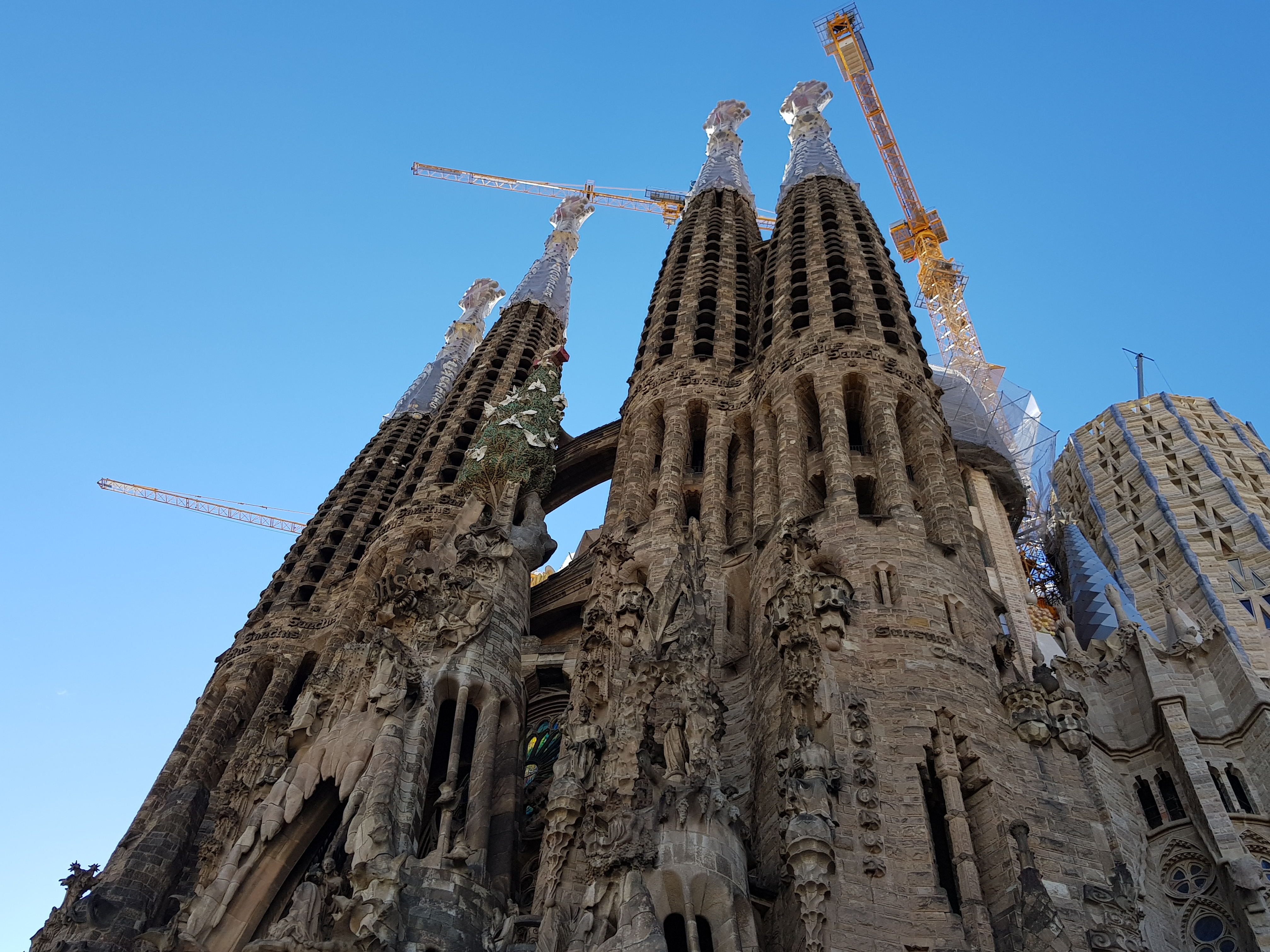The Independence Efforts in Catalonia
by Hannah Irschara (2003) Gisela-Gymnasium, München/Germany on 2018-01-09

We, students from the 9th form of Gisela-Gymnasium in Munich/Germany, were in Barcelona because of a students’ exchange, the week after the independence referendum in October 2017, which was in a difficult moment of the Catalonian and Spanish history. We interviewed two persons from our guest family.
trait d’union: Do you support the independence efforts of Catalonia or do you prefer staying in Spain? Please tell us your reasons and expectations.
Adela, 48, Barcelona: Yes, I support the independence of Catalonia, because we have different roots. Our culture is older than the Spanish one. We have been oppressed for many centuries ago by the Spanish kingdom. We have had the first Kingdom in Europe. So we have a lot of reasons to feel different.
Elisenda, 16, Barcelona: I support the independence of Catalonia because the Catalan culture is very different to the Spanish one. Their roots are more Arabic and ours are more Romanic. And also the government doesn´t treat us well, so there is a Catalan euphoria.
(Example: Friends of hers in Madrid, but they had been talking Catalan. Then a man came to them and told them to talk Spanish because they were disrespectful.)
trait d’union: What could be the consequences for Catalonia within Europe and the EU being independent?
Adela: From the beginning, we wanted to be out of the EU if they don´t allow us to stay in the EU. But for the people it won’t be a big problem because, as we are traders, we will have an agreement with all the countries easily. If we don´t stay in the EU, we will reach an EFTA-agreement. And of course if we can keep the Euro, it´s good, if not, we’ll have the Peseta again.
Elisenda: It is possible that we are not included in the EU and our money is not the Euro anymore. Maybe we´ll have the Peseta again.
trait d’union: How do you judge the actions and the handling of the crisis by the governments of Spain on the one hand and of Catalonia on the other? What would you advise them to do?
Adela: They treated us as if we were terrorists and they don´t want a dialogue. One aspect of the Catalan mentality is always dialogue instead of the Spanish mentality, which does everything by force.
Elisenda: The handling is very bad. The actions of the Spanish government are not right because they have hurt people and afterwards they have denied it. They have violated our right to vote and to have a democracy. And they have declared a referendum to be illegal, which is the basis of democracy. Every demonstration has been respectful and peaceful, also the authorities have kept the population calm in order to try and demand a dialogue from the Spanish government without giving them reasons to lock them up for violence.
Hanna’s classmates David Fritsche, Sarah Malki and Tobias Triebs worked also on this interview.
What is your opinion about the Catalonian crisis and about separatism in general? Are you convinced by the arguments you have read above?
Please give us a comment on it! Thank you!





Rosella Baldelli
Liceo Sesto Properzio, Assisi/Italy on 2018-01-16
Johannes Brömmel
Gisela-Gymnasium, München/Germany (1999) on 2018-01-15